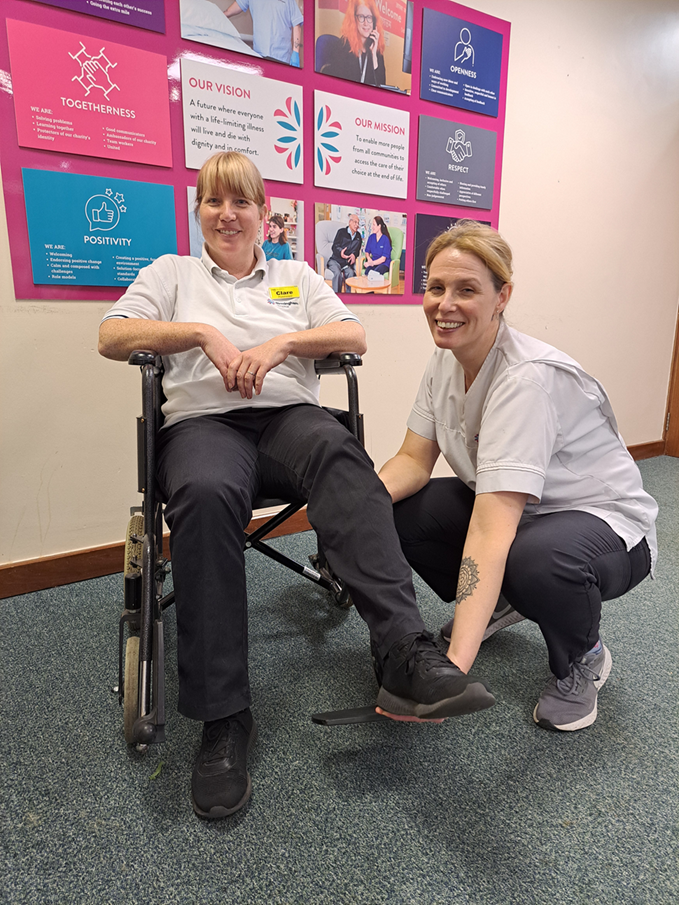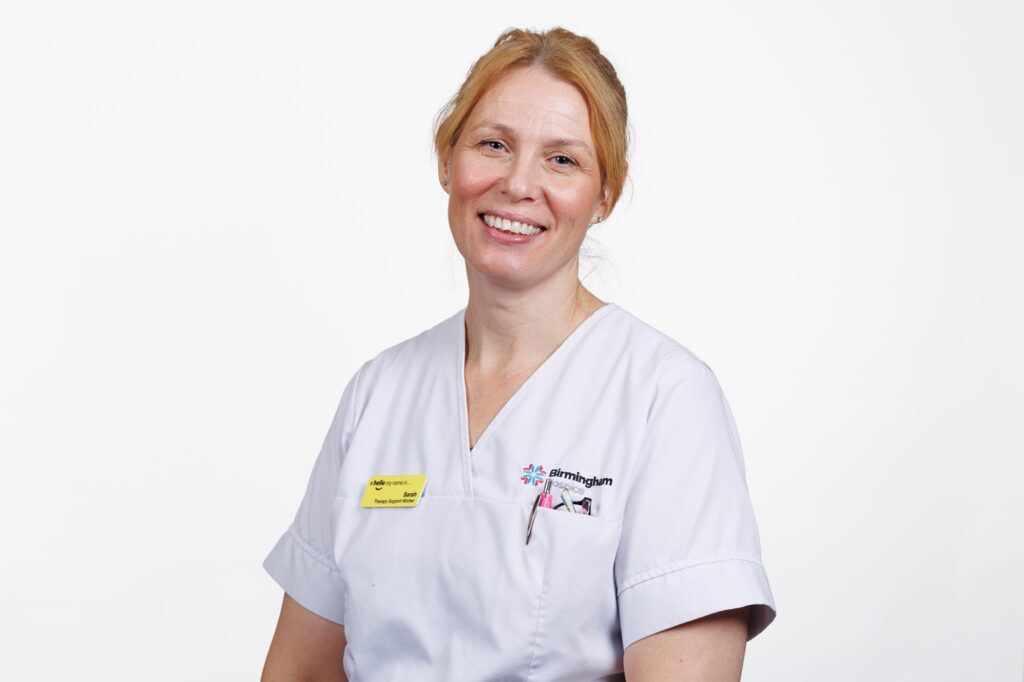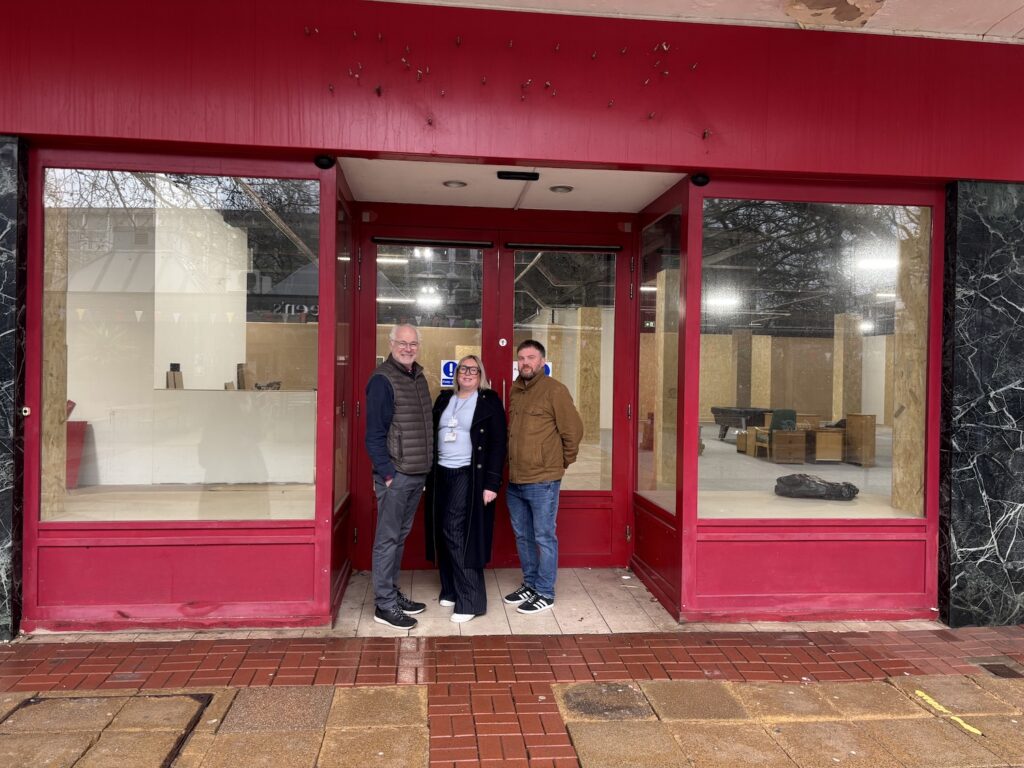Having spent 30 years as a dental nurse, Sarah found she really loved the contact with patients and then, after helping to care for family members when they were dying, she decided to go into palliative care.
When a job came up at Birmingham Hospice, Sarah applied and when she met the team lead, she found they shared the same values. “I just knew it was where I needed to be,” she said, and she is now a Support Worker for the Therapies Team.
The aim of physiotherapy and occupational therapy is, Sarah explained, “to keep people doing the things that are important to them. That really struck a chord with me.” The main purpose of the support worker role is to assist the therapists so they can help as many people as possible. From the wards to out in the community, this can look different every day. In Sarah’s words, it is “very varied and very different”. From fitting equipment, to leading peer support groups, Sarah’s role is full of variety.
On a working day as a Therapy Support Worker, Sarah often visits patients in their homes. “It might be that the occupational or physiotherapists have been out to see a patient, and they have assessed them for mobility, or they have done a bathing assessment. They have established what their patient needs. They know their patients’ capabilities, and they know the environment the patient is living in. Based on that assessment, they would ask me to go out with pieces of equipment to trial and fit.”

Sarah also helps run peer support groups to support breathlessness intervention. This is such an important part of the work they do because “the patients that struggle from their breathlessness don’t often get what they need from other services because services are so stretched.” As well as peer support, the groups practice mindfulness, anxiety management, relaxation and exercise. “Those things combined have a massive positive effect on how somebody manages breathlessness,” Sarah explained.
Working in the Therapies Team is a rewarding career. For example, Sarah stated how connecting with people during difficult and vulnerable moments is one of the most rewarding aspects. “It is a privilege that patients let you in at a really vulnerable time. It is really significant to me.”
Physiotherapy and occupational therapy are often all about the little wins. Sarah explained how this is another rewarding part of her work – when someone is originally reluctant to try new support mechanisms, but then they give it a go, and it enables them to continue to be independent.
“People can see the use of equipment as a barrier or loss of independence and can be reluctant to trial it,” said Sarah. “I think that transition into acceptance is a massive journey. If you can suggest that these pieces of equipment enable you to continue doing what’s important to you, it can help. Those little wins go a long way.”
She added: “It’s really important to know if a patient wants to die at home, so knowing you’ve managed to help them achieve that in the best possible way, and the most comfortable way, and been there to support everyone – you think, I’ve done my job, and it makes it all worthwhile.”
To support our Love Your Local Hospice campaign, and help our team continue to deliver their services please visit the link below.



